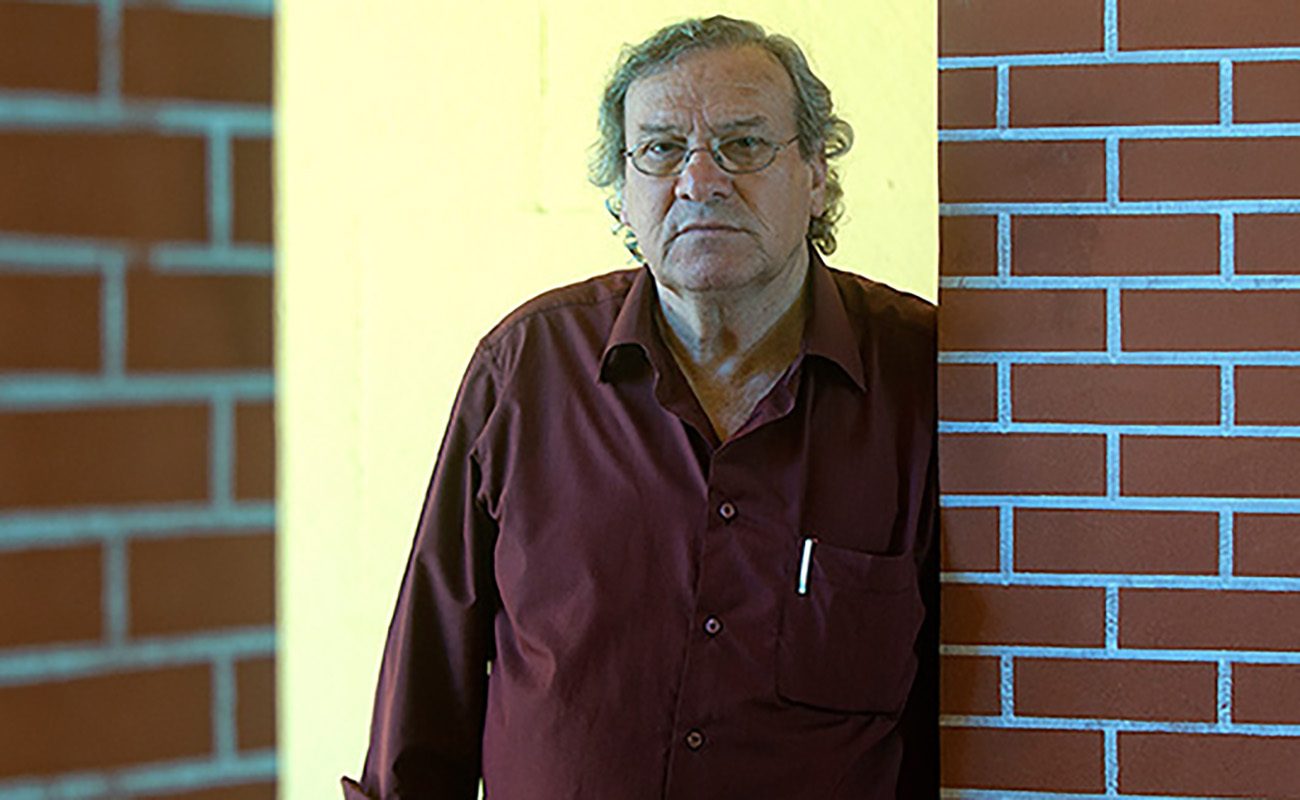Manuel Gerena: the forbidden voice
With all his defects and virtues, his lights and his shadows, Gerena is one of the most important voices in Andalusian music. He’s a living history of cante, a living history of the struggle for social and political justice, and a living history of our culture.

Spain has forgotten its singer-songwriters, and Andalusia, part of Spain, has forgotten its flamenco singer-songwriters. Manuel Gerena has always been the quintessential flamenco singer-songwriter, the most “guerrilla” of them all, creator of his own lyrics and cantaor on his own right. His style is devoid of any superfluous ornaments, although it’s often said that he isn’t a good cantaor, as if that mattered when the point is to send messages to the people through music, through his voice, as this cantaor from Puebla de Cazalla, in the province of Seville, has been doing for over fifty years. He didn’t became cantaor due to a family tradition, but due to the fact that cantaores like him were needed in an Andalucia which was in the hands of pro-Franco landlords and priests. Puebla de Cazalla is a town of farm labourers, men and women raising their children doing any work they could. Like his father, Manuel Fernández Natera “El Vapora”, Genera was a humble electricician, although before that he worked in his family’s local ferry service, distributing packages. He was also a farm labourer, earning a woman’s salary, since children weren’t as productive as grownup men. A lot of work and little schooling, althought that didn’t prevent him from having access to reading, to poetry, to cante. He became a professional cantaor in 1968, one year before the death of Niña de los Peines. Back then, cante wasn’t rebellious, maybe just slightly so. Gerena wasn’t rebellious either, and he stuck to the classics of his time, to the masters who were trying to preserve old cante, such as Mairena, El Gallina, Juan Talega or Fosforito.
It wasn’t easy to sing subversive lyrics in Franco’s time, but in eventually Gerena started writing and singing them. By 1975 Gerena had stablished himself as a rebel, and that year he launched his ground-breaking record “Cantando a la Libertad”, produced by Gonzalo García Pelayo, which definitely set the course in the career of this singer-songwriter. Gerena had been the persecuted and forbidden voice of cante jondo for a long time, although he was sheltered by left-leaning intellectuals who dedicated whole pages to him in newspapers and magazines, and who sometimes used Gerena to tease the authorities. Gerena filled theatres, summer cinemas and all sorts of venues in Spain and abroad. His concerts were banned, sometimes resulting in disturbances and public protests. He passport was confiscated and he was even jailed a few times. He became a high-profile personality, as popular as the best bullfighters, politicians or famous singers. When democracy arrived and the prohibitions were lifted, though, he was forgotten, even as Gerena never quit the stages, never stopped recording, and never gave up publishing books with his lyrics, which sold better than books written by the best authors. He’s still there, in the trenches, committed to his ideals and to the weakest in society. Next Thursday, the 29 of October, he’ll be horoured with a tribute in the Auditorio Marcelino Camacho, in Madrid, on the occasion of his 70th birthday, and the 50th anniversary of his professional career in cante. That should not be the last tribute awarded to him, since, with all his defects and virtues, his lights and his shadows, Gerena is one of the most important voices in Andalusian music. He’s a living history of cante, a living history of the struggle for social and political justice, and a living history of our culture.
Duerme, compañera,
Duerme mientras quedo
labrándole al hijo
libertad, si puedo.
Sleep, partner
Sleep while I remain
working for my son’s
freedom, if I can




